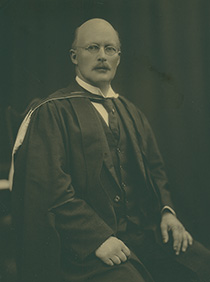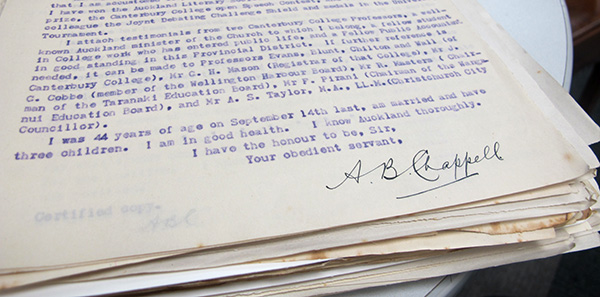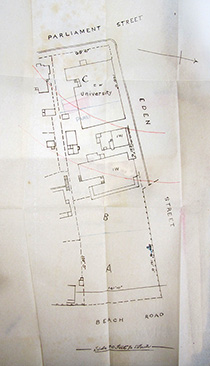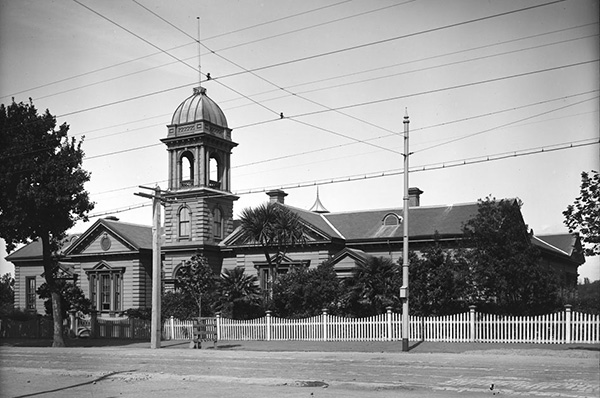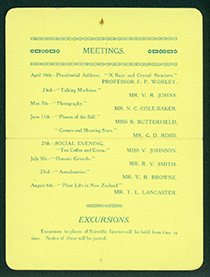
AUC Scientific Society syllabus for 1917.Johns Ltd records. MSS & Archives A-26. Special Collections, University of Auckland Libraries and Learning Services.
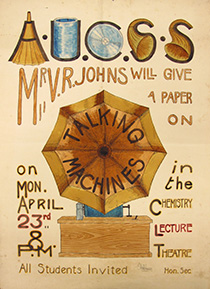
Poster for AUC Scientific Society lecture by Victor Johns, 23 April 1917.Johns Ltd records. MSS & Archives A-26. Special Collections, University of Auckland Libraries and Learning Services.
The number of women attending AUC in 1917 was higher than in the previous two years, with women accounting for 45 percent of the 503 students on the roll. Meanwhile, the introduction of military conscription in August 1916 had further reduced male student numbers, particularly among the senior student body. This was remarked on several times in the student magazine Kiwi, including by the Commerce Students’ Society, which was concerned that the loss of their senior men would result in fewer meetings. However, a recruitment campaign and ‘the inclusion of several enthusiastic lady members' on their Executive reversed the situation. The Debating Society also noted the part played by women members, who held their own debate on whether the ‘Modern girl is superior to the Early Victorian’ and competed in the First Year and Open debates.
Among the debaters were Misses Beatrice Butterfield, Bessie Battersby and Beatrice Brendel, who were also members of the Student Association Executive (pictured below.) For Miss Butterfield, 1917 was a particularly busy year. In addition to student politics and debating, she gave an ‘exceedingly entrancing’ presentation to the Scientific Society, announced her engagement to the Physics Department Laboratory Assistant, Victor Johns and in July took over responsibility for maintaining the AUC Roll of Honour.
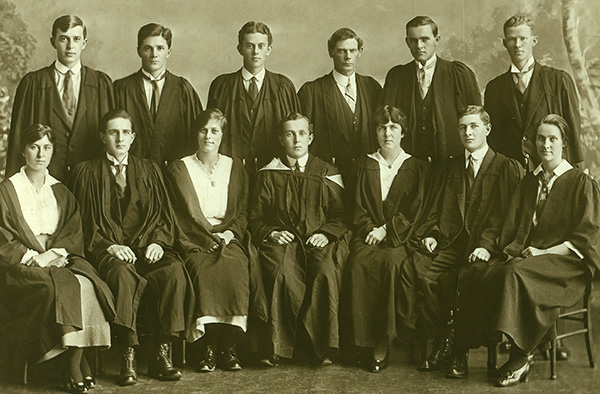 Auckland University College Students’ Association Executive 1917.Auckland University Students’ Association records. MSS & Archives E-9, item 5/12. Special Collections, University of Auckland Libraries and Learning Services.
Auckland University College Students’ Association Executive 1917.Auckland University Students’ Association records. MSS & Archives E-9, item 5/12. Special Collections, University of Auckland Libraries and Learning Services.
Miss Butterfield was also one of several students who attended both AUC and the nearby Auckland Training College (ATC), which in October 1917 was rocked by the death at Passchendaele of former principal Herbert Milnes. Students who attended both institutions worked long days, attending ATC during the day and University lectures in the evening, grabbing meals where they could. ATC principal Herbert Cousins suggested this had contributed to the poor health of several of its trainee teachers.
Just how late lectures ran at AUC was highlighted in April when the Minister of Railways advised that wartime shortages might require train services to end at 7pm. The Registrar argued that the plan would severely disrupt the University and that to ‘interfere with education was going beyond the necessities of the present situation’ and suggested that one late train between 9.30-10pm would meet the needs of students.



